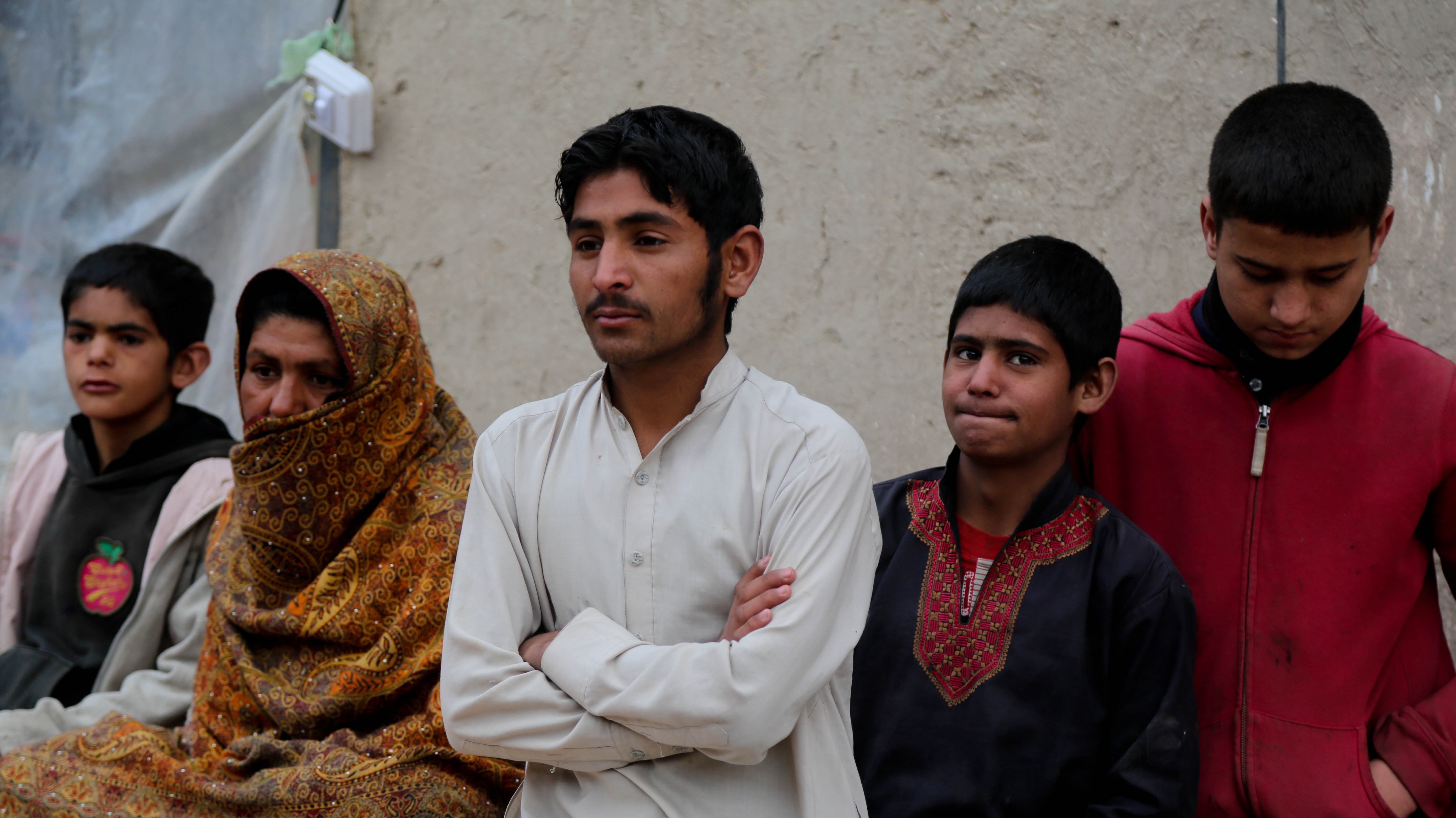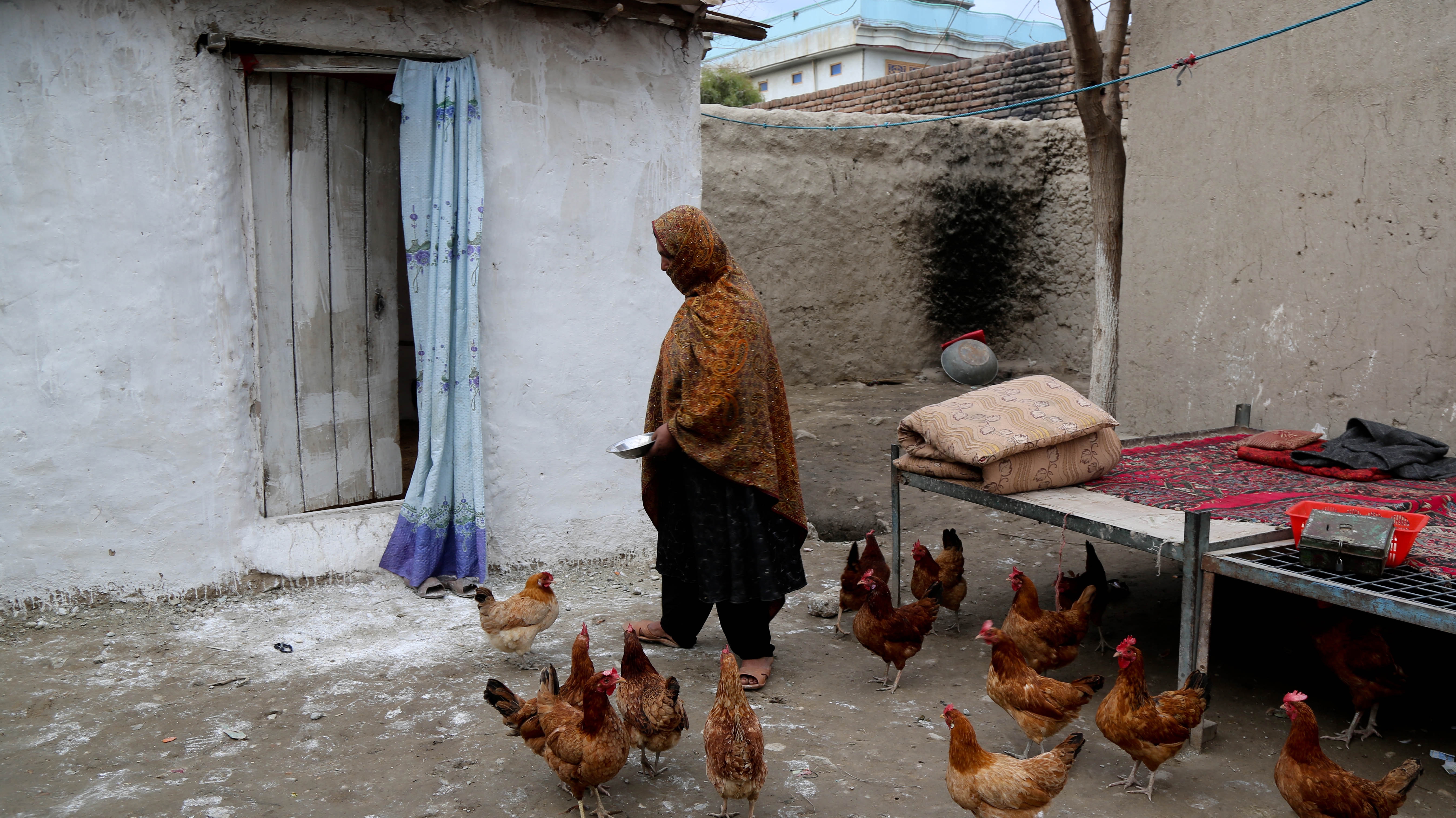BEHSOUD DISTRICT, Nangarhar Province – Zahidah, 40, has not let her paralyzed left hand stop her from getting her family’s livelihood in order and motivating her husband to start working following his long struggle with drug addiction.
Zahidah attributes much of her success to the National Horticulture and Livestock Project (NHLP). “A year ago, the NHLP provided me with 30 chickens and five bags of grain to establish a small chicken farm,” she says. “Now, these chickens lay 25 to 30 eggs every day and my husband sells the eggs in the village in his handcart.”
Zahidah lives with her husband and their six children in a small mud-walled house in Qala-e-Mirza village of Behsoud district, five kilometers east of Jalalabad city, the capital of Nangarhar Province. Her hand has been paralyzed for 20 years—the result of an explosion. This injury, along with her husband’s more recent drug addiction, has caused her and her family extensive suffering over the years.
While life is still not easy, the NHLP has provided some relief to Zahidah and her family. Through the small poultry farm in the family’s backyard, Zahidah has been able to slowly turn her life around, one egg at a time.
“I am very happy for the support and assistance,” Zahidah says. “I hope to expand my business, and I am saving money to materialize this dream. Fortunately, today I earn 150 to 200 Afghanis ($3-$4) per day.”
The NHLP, implemented by the Ministry of Agriculture, Irrigation and Livestock (MAIL) with support from the Afghanistan Reconstruction Trust Fund (ARTF), contributes to the overarching goal of increased productivity and overall production of horticultural products, and improved animal production and health. The project aims to promote adoption of improved production practices by target farmers. Service delivery centered on farmers will promote increased participation of beneficiaries in defining the type of services required and in the delivery itself. NHLP activities are currently implemented in 120 districts in 21 target provinces, numbers that may grow as conditions warrant.


